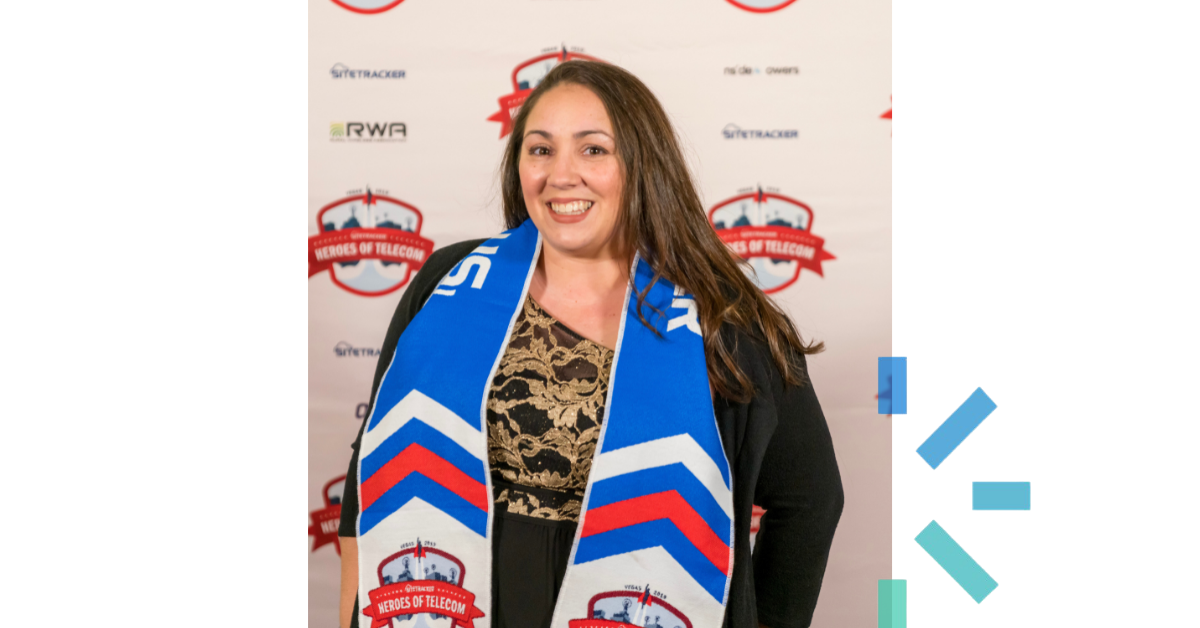Project managers are the unsung heroes of the telecom industry. With the increase in the volume, variety, and velocity of projects these individuals are doing more with less and pushing their organization forward by demonstrating outstanding leadership. When Alicia Manzi, OSP Operations Manager at Segra, won the Project Manager of the Year Award at the Heroes of Telecom Awards, I knew I had to get to know her and hear her advice on breaking into the world of project management.
What is your first thought every morning?
The past few weeks my dog has been jumping on my bed and barking loudly in my face to be let out – so my first thought is “WHAT’S WRONG”. Once I get logged into work first though is what my day looks like. Check the calendar and make sure I’m prepared for any meetings coming up.
How did you get into Project Management?
By accident, a bit of luck and just asking “Is there anything I can do to help?” I realized I could actually enjoy project management early in my career when I was chosen to be an SME [subject matter expert] for different company initiatives. So, with a bit of luck – being in the right place at the right time – and willing to work through the tough situations, and putting some forethought into what my next steps would be has led to more opportunities.
Tell me a little more about the projects you and your team are working on.
Currently, I am preparing for a large Fiber to the Cell program that will last around three years across multiple states. I am at the very tail end of a large Carrier End-user program, with only three more sites left to complete! This project started in March of last year and crossed five states.
There must be a ton of data for those long-term projects. How many projects do you manage at once and who do you deliver your data to?
Currently, across our organization, I can get answers for over 1200 projects. I deliver data and project updates to everyone from Permitting Entities and Accounting to Customers, the Executive Team, and Engineers.
That is a ton of information to keep straight.
I keep track of it all in Sitetracker. The nice thing is Sitetracker works for you, you do not have to work endless hours manipulating data and herding spreadsheets from multiple people, areas, and departments. Everyone has a central source to view high-level data as well as get as granular as they want.
What are some of the KPI’s you track?
Build time is a big one. Tracking when did you start – when did you complete it?
We are always racing the clock to get sites completed on time and bring that average down.
Then always looking at intervals within the Start to Stop, such as permitting intervals with different entities, Site Survey to Permit Submittal, Permit Approved to Construction Complete. You have to look at that middle data in order to see where you can pick up efficiencies moving forward.
We report monthly to our team and management a set of Key Performance Indicators that are generated out of Sitetracker. These KPIs report on what we have accomplished for the previous year broken out by month.
What is the best lesson you have learned in Project Management?
When working with many people and sites I have learned to take the time to ask “Who, What, Where, When, Why, What If, What If, What If” one hundred times upfront. It will save heartburn in the long run, especially on any long-term project. I also think it’s okay to not have all the answers memorized, but be familiar enough with your available data to find that answer.
What advice would you give to new Project Managers?
Try to think a few steps ahead and anticipate possible needs/risks. When you take the time to think through possibilities it helps to be better prepared if/when that scenario arises and you can stay cool calm and collected because you already have a well-thought-out plan!
Is there anyone you want to give a shoutout to?
Hey Mom! My teammates at Segra really deserve a shot out and the highest of fives. Go Segra OSP Operations! It’s a great, supportive environment. John Thibodoux, Billy Solomon – thank you all for believing in our team and for all your guidance and support.
My final question for you: when you were a little, what did you want to be when you grew up?
Growing up I was determined to be a wrestler for, at the time named, WWF – World Wrestling Federation (now the WWE). The more realistic dream was to be a stage manager for Broadway plays in NYC. I think I landed in a role that gives me the best of both worlds!
—
Do you know a fantastic project manager? Someone who hits deadlines, has stories to share, can get around any roadblock, and pushes projects over the line? We want to feature them in our Projects Are Life series. Shoot us an email and tell us why they are awesome at PaL@sitetracker.viewstream-media.com.
